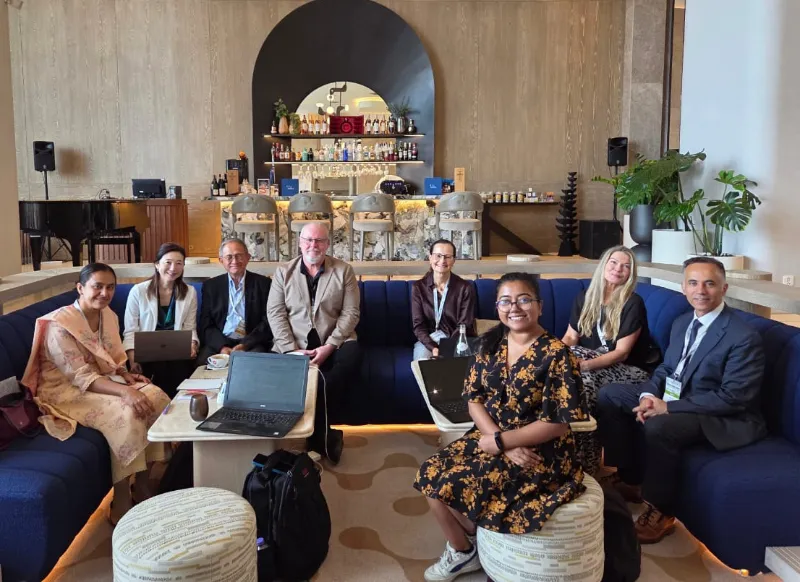
Posted in News on Jun 25, 2025.

By Mel Sellick
College of Global Futures
Arizona State University
In the lead-up to the 3rd UNESCO Global Forum on the Ethics of Artificial Intelligence, two linked side events held in Bangkok on June 23 and 24 convened an extraordinary gathering of scholars, practitioners, and policymakers across sectors and regions. Far from being performative exercises in science and policy communication, these events served as platforms for a rich exchange of experience, insights and collaborative agenda-setting that directly informed an outcome statement published today at the Global Forum in Thailand: Seeding Ethical AI Stewardship for Shared Global Futures.
The first event coordinated by the BRIDGES Coalition at the Bangkok Convention Center, Enabling Ethical AI for Present and Future Generations in a Time of Heightened Global Insecurity (June 23), brought together speakers from 14 countries around the world to address the urgent ethical demands of AI development amid climate crisis, biodiversity loss, and growing geopolitical instability. Anchored in the conviction that AI can both mitigate vulnerabilities and strengthen international cooperation, the symposium explored how AI ethics must evolve to safeguard human rights, democratic values, and the ecological integrity of our shared global futures. Participants engaged across a range of domains, including education, governance, civil society, science, research and innovation to envision viable, human-centered pathways for responsible AI development.
The second event, AI Ethics and Governance in a Fractured World: Asia Pacific's Path Forward (June 24), hosted and coordinated by Chulalongkorn University, focused on the complexities of ethical governance in socially and economically diverse contexts. With attention to labor rights, digital sovereignty, Indigenous data governance, climate risk, and Fourth Industrial Revolution inclusion, the event asked critical questions: Who benefits from AI? Who is excluded? And what kind of governance frameworks can uphold justice in an unequal world? This gathering amplified regional voices and built coalitions toward inclusive, rights-based frameworks for AI futures.
These two days of intensive, interactive dialogue kicking of UNESCO 3rd Global Forum on the Ethics of AI now culminate in a single published outcome statement, including a set of recommendations informed by the expertise, insights, and lived experiences of participants, then synthesized by a dedicated working group spanning numerous knowledge domains across the co-sponsoring partners. This collaborative team worked together to distill key insights into an AI ethics agenda, with recommendations for policymakers, rooted in collaboration and care for present and future generations.
The outcome statement offers actionable guidance on the risks, vulnerabilities, opportunities and responsibilities implicated in AI's potential for transformative impact in our world, while addressing the era's most pressing challenges, from global insecurity to ecological crisis to persistent inequality.
Delegates to the UNESCO’s 3rd Global Forum on the Ethics of AI, as well as the broader international public, are invited to read and reflect on this Statement from the Forum, available Here.

Photo of the co-sponsoring partners’ working group who drafted the outcome statement, left to right:


